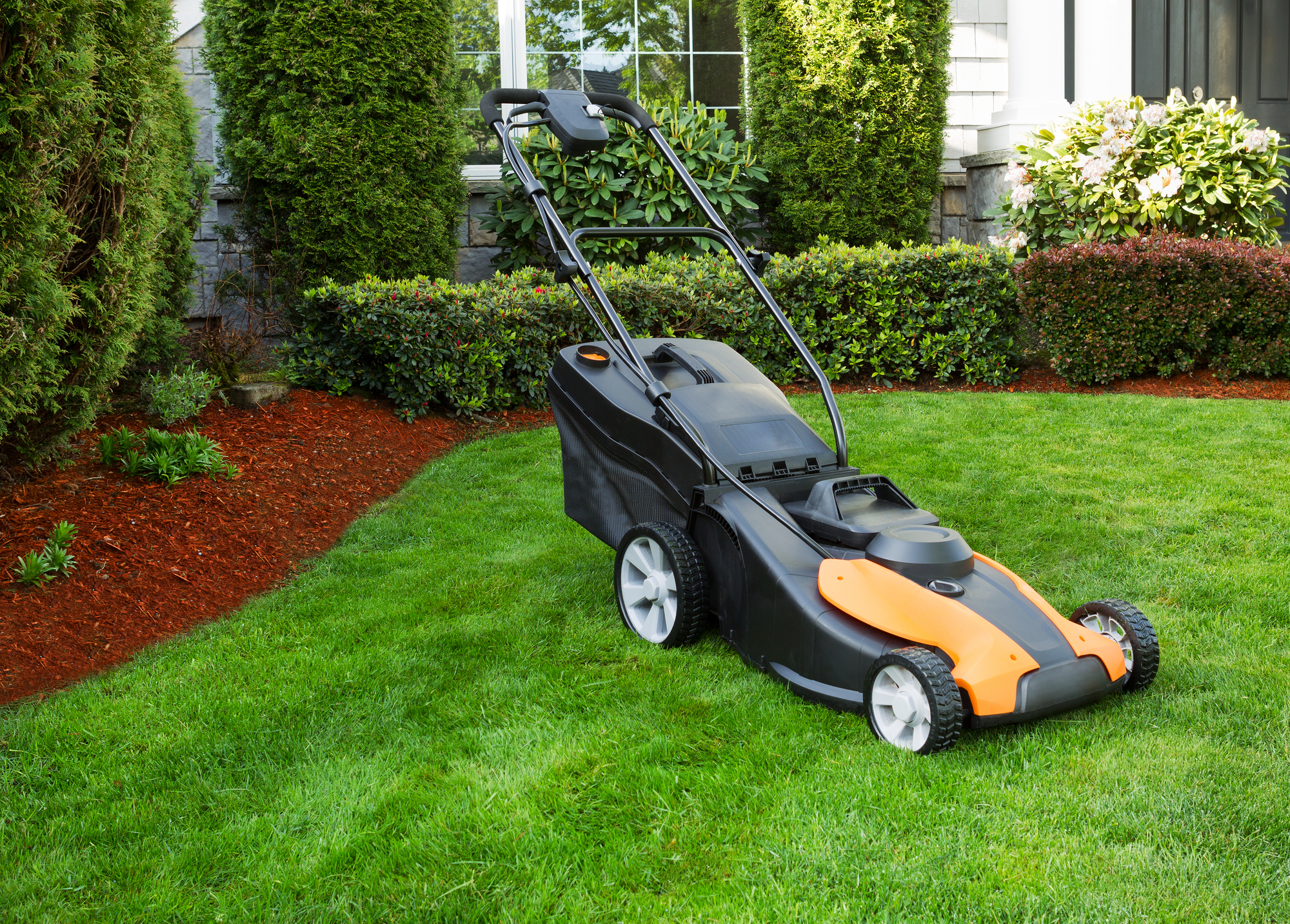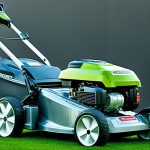Are you tired of your lawn mower battery running out of juice in the middle of your mowing session? Do you wonder how long these batteries are supposed to last and if there’s anything you can do to extend their lifespan?
In this article, we will delve into the world of lawn mower batteries and explore their average duration. Whether you have a push mower, a riding mower, or an electric mower, understanding the lifespan of your battery is crucial to ensure you have enough power to complete your lawn care tasks.
Key Takeaways:
- Lawn mower batteries can vary in lifespan depending on various factors such as battery type, maintenance practices, and usage conditions.
- Lead-acid batteries are cheaper but require more maintenance and have a shorter lifespan compared to lithium-ion batteries.
- Lithium-ion batteries can last 4-6 times longer than lead-acid batteries and offer several advantages.
- Factors such as maintenance, storage, frequency of use, and temperature can impact the lifespan of lawn mower batteries.
- Proper care, maintenance, and charging practices can help extend the battery’s lifespan and avoid premature failure.
Understanding the Different Types of Lawn Mowers
Before discussing the lifespan of lawn mower batteries, it’s important to understand the different types of lawn mowers available. These include push mowers, riding mowers, self-propelled mowers, zero-turn mowers, and electric mowers. Each type of mower has its own power source, which can affect the lifespan of the battery.
Push mowers require manual effort to push them forward, making them suitable for smaller lawns. They are generally powered by gasoline engines but can also be electric-powered.
Riding mowers are ideal for larger lawns as they are equipped with a seat and steering wheel, allowing the operator to ride while mowing. They are typically powered by gasoline engines.
Self-propelled mowers have a drive system that allows them to move forward on their own. This feature reduces the effort required to push the mower. They can be powered by gasoline engines or electric motors.
Zero-turn mowers have a zero-turn radius, enabling them to pivot around obstacles efficiently. They are often used on large properties and can be powered by gasoline engines or electric motors.
Electric mowers use electricity as their power source and are available in both corded and cordless options. Corded electric mowers require an extension cord, while cordless mowers are powered by rechargeable batteries.
Understanding the different types of lawn mowers is essential in determining the appropriate battery type and estimating its lifespan. The next sections will delve into the specific characteristics and considerations for each type of lawn mower battery.
Powering Lawn Mowers: Gasoline, Corded Electric, and Battery
Lawn mowers can be powered by different sources, including gasoline engines, corded electric power, or batteries. Each power option has its own advantages and considerations to keep in mind when choosing a lawn mower.
Gasoline Lawn Mower
A gasoline lawn mower is powered by a gasoline engine and requires fuel and oil to operate. These mowers typically have a pull-start mechanism, making them convenient for starting up. Gasoline mowers are suitable for large lawns and heavy-duty use, as they provide consistent power throughout the mowing process.
Corded Electric Lawn Mower
Corded electric lawn mowers are powered by electricity and require an extension cord to connect to a power source. These mowers are suitable for small to medium-sized lawns where the cord can reach all areas without limitations. Corded electric mowers offer the advantage of continuous power supply and are generally quieter than gasoline mowers.
Battery-Powered Lawn Mower
Battery-powered lawn mowers, also known as electric mowers, run on rechargeable batteries. These mowers eliminate the need for fuel or cords, offering convenience and ease of use. Battery-powered mowers are suitable for small to medium-sized lawns, but may not be ideal for heavy-duty use due to limited battery life. However, advancements in battery technology have led to longer run times, allowing for more extensive mowing sessions.
Types of Lawn Mower Batteries: Lead-Acid vs Lithium-Ion
When it comes to powering your lawn mower, there are two main types of batteries to choose from: lead-acid batteries and lithium-ion batteries. Each type has its own set of advantages and drawbacks, which we will explore in detail. By understanding the differences between these two battery technologies, you can make an informed decision that suits your needs.
Lead-Acid Batteries
Lead-acid batteries have been widely used in various applications for decades. They are known for their affordability, making them a popular choice for many lawn mower owners. However, lead-acid batteries come with certain drawbacks.
Lead-acid batteries require regular maintenance, including monitoring the electrolyte levels and topping up with distilled water. They also have a shorter lifespan compared to lithium-ion batteries.
Lithium-Ion Batteries
Lithium-ion batteries are the newer and more advanced option when it comes to lawn mower batteries. Although they may have a higher upfront cost, they offer several advantages that make them worth considering.
Lithium-ion batteries have a much longer lifespan compared to lead-acid batteries, lasting 4-6 times longer on average. They also require less maintenance, eliminating the need for regular electrolyte level checks and water top-ups. Additionally, lithium-ion batteries have a higher energy density, which means they can store more energy and provide longer runtimes between charges.
Furthermore, lithium-ion batteries are lightweight, making them easier to handle and install in lawn mowers. They also have a faster charging time, allowing you to get back to mowing sooner. The improved performance and reliability of lithium-ion batteries make them a popular choice among professional landscapers and homeowners who value convenience and efficiency.
The Advantages of Lithium-Ion Batteries
To summarize, here are the key advantages of using lithium-ion batteries in your lawn mower:
- Longer lifespan, lasting 4-6 times longer than lead-acid batteries
- Requires less maintenance, eliminating the need for regular electrolyte level checks and water top-ups
- Higher energy density, providing longer runtimes between charges
- Lightweight and easy to handle
- Faster charging time
Overall, lithium-ion batteries offer superior performance and convenience compared to lead-acid batteries. While they may have a higher upfront cost, the long-term benefits make them a worthwhile investment for a reliable and efficient lawn mower.
Lifespan of Lead-Acid Lawn Mower Batteries
Lead-acid batteries, commonly used in lawn mowers, have a variable lifespan depending on the maintenance they receive. Without proper care and maintenance, these batteries may only last for a single mowing season. However, with regular maintenance and attention, their lifespan can be extended to several hundred cycles.
One crucial factor that can affect the lifespan of lead-acid batteries is the surrounding temperature. Cold temperatures can significantly shorten their lifespan, so it’s essential to store the batteries in warmer environments during the off-season to maintain their optimal performance. Additionally, extreme heat can also have a detrimental effect on these batteries.
Maintaining lead-acid batteries involves several key steps. Regularly checking the battery’s water levels is important, as low water levels can lead to reduced functionality and decreased lifespan. It’s crucial to ensure that the battery is always topped up with distilled water to the appropriate level indicated on the battery casing.
Another crucial aspect of lead-acid battery maintenance is maintaining proper terminal connections. Corrosion can develop on the battery terminals over time, leading to poor performance and potential damage. Regularly cleaning the terminals with a mixture of baking soda and water can help prevent corrosion and ensure optimal performance.
Additionally, it’s necessary to keep an eye on the overall condition of the battery. Any signs of physical damage, such as cracks or leaks, should be addressed promptly to prevent further deterioration and reduce the risk of failure.
By following these maintenance practices, owners can ensure that their lead-acid lawn mower batteries perform optimally and last for an extended period. Proper maintenance is key to maximizing the lifespan of these batteries and avoiding unexpected failures or replacements.
Lifespan of Lithium-Ion Lawn Mower Batteries
Lithium-ion batteries have revolutionized the world of lawn mower batteries, offering a longer lifespan and numerous advantages over traditional lead-acid batteries. If you’re looking for a reliable and durable power source for your lawn mower, lithium-ion batteries are the way to go.
One of the key benefits of lithium-ion batteries is their extended lifespan. Compared to lead-acid batteries, which typically last for a few years, lithium-ion batteries can last 4-6 times longer. With proper care and maintenance, these batteries can serve you for a decade or more.
What makes lithium-ion batteries so durable? Firstly, they have a higher power density, which means they can store and deliver more energy compared to lead-acid batteries. This results in longer run time and more efficient operation of your lawn mower.
Additionally, lithium-ion batteries experience slower capacity loss over time. This means that as the battery ages, it retains its charging capacity for a longer period. You won’t have to worry about diminishing run time or reduced power output as the battery gets older.
Lithium-ion batteries offer an impressive lifespan of 10+ years or approximately 3,000 charging cycles at 80% depth of discharge (DOD). This means you can mow your lawn without any interruptions for many seasons to come.
Furthermore, lithium-ion batteries come with several advantages over lead-acid batteries. They are lightweight, compact, and easier to handle. This makes them ideal for maneuvering around your lawn without any added bulk or weight.
In addition, lithium-ion batteries require minimal maintenance. Unlike lead-acid batteries that need regular watering and maintenance, lithium-ion batteries are virtually maintenance-free. You can spend more time mowing and less time worrying about battery upkeep.
The higher energy density and faster charging time of lithium-ion batteries also contribute to their overall efficiency and convenience. You can get back to mowing quickly with shorter charging times and enjoy more continuous operation with higher energy storage.
With their longer lifespan and numerous advantages, lithium-ion batteries are an excellent investment for your lawn mower. Upgrade to a lithium-ion battery and experience the benefits of extended run time, improved performance, and hassle-free maintenance.
Factors Affecting Lawn Mower Battery Lifespan
Several factors can influence the lifespan of lawn mower batteries, including maintenance practices, proper storage, frequency of use, and temperature conditions. By understanding and addressing these factors, you can maximize the lifespan of your battery and ensure consistent performance.
Maintenance
Proper maintenance is essential for prolonging the lifespan of your lawn mower battery. Regularly inspect the battery for any signs of damage, such as cracks or leaks, and address them promptly. Clean the battery terminals with a mixture of baking soda and water to remove any corrosion, which can impede proper functioning. Additionally, avoid overcharging or deep discharging the battery, as this can shorten its lifespan.
Storage
How you store your lawn mower battery during the offseason can significantly impact its lifespan. Store the battery in a cool, dry place away from direct sunlight and extreme temperatures. Consider removing the battery from the mower and storing it indoors if possible. This helps protect the battery from temperature extremes, which can degrade its performance.
Usage Frequency
The frequency at which you use your lawn mower can also affect battery lifespan. If you frequently use your mower, the battery may undergo more charge cycles, which can lead to accelerated degradation. However, infrequent use can also be detrimental, as prolonged periods of inactivity can cause the battery to lose its charge more quickly. Striking a balance between regular use and proper maintenance is key.
Temperature Conditions
Temperature plays a crucial role in the performance and lifespan of lawn mower batteries. Extreme heat or cold can negatively impact battery performance and longevity. It’s important to avoid exposing the battery to temperature extremes, such as leaving it out in direct sunlight on a hot day or storing it in a freezing garage during winter. Aim to keep the battery at an optimal temperature range for maximum efficiency.
Tips for Extending Lawn Mower Battery Lifespan
To ensure your lawn mower battery lasts as long as possible, follow these helpful tips and practices:
Fully Charge Before Use
Before starting your mowing session, it’s essential to fully charge the battery. This ensures optimal performance and maximizes its lifespan.
Avoid Overcharging or Discharging
Overcharging or completely discharging the battery can have a negative impact on its lifespan. Follow the manufacturer’s recommendations for charging intervals and avoid leaving the battery connected to the charger for extended periods.
Store Properly During the Offseason
When the mowing season comes to an end, make sure to store the battery properly. Keep it in a cool and dry place, away from extreme temperatures, moisture, or direct sunlight. This helps prevent degradation and extends its overall lifespan.
Regular Maintenance
To keep your lawn mower battery in optimal condition, perform regular maintenance tasks. This includes cleaning the terminals and connections, inspecting for any signs of damage or corrosion, and ensuring a tight and secure connection.
By following these tips, you can significantly increase the lifespan of your lawn mower battery, ensuring reliable performance and fewer replacements in the long run.
Estimating Battery Life for Lawn Mowers
Estimating the exact battery life for a lawn mower can be challenging as it depends on various factors such as usage frequency and mowing conditions. However, with proper maintenance and care, lithium-ion batteries can last significantly longer than lead-acid batteries.
Factors Affecting Battery Life
Several factors can affect the lifespan of a lawn mower battery, including:
- Usage Frequency: The more often the lawn mower is used, the more frequently the battery will be drained and recharged, which can impact its overall lifespan.
- Mowing Conditions: Different mowing conditions, such as tall or thick grass, uneven terrain, or wet grass, can put additional strain on the battery and reduce its lifespan.
Maximizing Battery Life
To maximize the battery life of your lawn mower, consider the following tips:
- Maintain a Regular Charging Schedule: Avoid overcharging or fully discharging the battery as this can negatively impact its overall lifespan.
- Proper Storage: When storing your lawn mower during the offseason, ensure the battery is removed and stored in a cool, dry place.
- Keep the Battery Clean: Regularly inspect and clean the battery terminals to prevent corrosion, which can affect its performance and lifespan.
Pros and Cons of Lithium-Ion Lawn Mower Batteries
When it comes to choosing a battery for your lawn mower, lithium-ion batteries have several advantages over lead-acid batteries. Understanding the pros and cons can help you make an informed decision.
Advantages of Lithium-Ion Batteries:
- Lower Discharge Rate: Lithium-ion batteries have a lower self-discharge rate compared to lead-acid batteries. This means they can retain their charge for longer periods, even when not in use.
- Faster Charging Time: Lithium-ion batteries can be charged more quickly than lead-acid batteries. This allows you to spend less time waiting for the battery to recharge and more time getting the job done.
- No Maintenance Required: Unlike lead-acid batteries, lithium-ion batteries do not require regular maintenance. They do not need to be topped up with distilled water or have their terminals cleaned and checked regularly.
- Resilient to Extreme Temperatures: Lithium-ion batteries are more resistant to extreme temperatures, both hot and cold, compared to lead-acid batteries. This makes them suitable for use in different climates and seasons.
Disadvantages of Lead-Acid Batteries:
- Shorter Lifespan: Lead-acid batteries typically have a shorter lifespan compared to lithium-ion batteries. They may require replacement sooner, adding to the overall cost over time.
- Maintenance Requirements: Lead-acid batteries require regular maintenance, including checking and adding distilled water, cleaning terminals, and ensuring proper ventilation.
- Susceptible to Temperature Changes: Lead-acid batteries are more sensitive to temperature changes. Extreme heat or cold can affect their performance and lifespan.
While lithium-ion batteries offer several advantages, it’s important to note that they can be more expensive upfront compared to lead-acid batteries. However, considering their longer lifespan and maintenance-free operation, the initial investment can be worthwhile in the long run.
Lifespan of Lawn Mower Batteries: Comparison with Other Batteries
When compared to other types of batteries, such as marine batteries, the lifespan of lawn mower batteries may seem relatively shorter. However, with proper care and maintenance, lawn mower batteries can still last for several years, ensuring optimal performance for your lawn mowing needs.
Common Issues and Solutions for Dying Lawn Mower Batteries
Dying lawn mower batteries can be frustrating and inconvenient, but understanding the common issues that can cause their decline can help you troubleshoot and find solutions. Here are some of the most common issues with lawn mower batteries and their potential solutions:
1. Parasitic Draw
Parasitic draw refers to the continuous drain on the battery when the mower is not in use. This can be caused by accessories or components that are still drawing power even when the mower is turned off. To fix this issue, thoroughly inspect your mower and disconnect any accessories or components that might be causing the parasitic draw.
2. Age
As lawn mower batteries get older, their performance and capacity naturally decline. If your battery is several years old, it may no longer hold a charge as effectively. In this case, the best solution is to replace the battery with a new one to ensure consistent power and reliable performance.
3. Loose Connections
Loose or corroded connections can prevent the battery from delivering power effectively. Regularly inspect the battery terminals and cables for any signs of looseness or corrosion. If you notice any issues, clean the connections and tighten them securely to establish a strong and reliable electrical connection.
4. Physical Damage
Lawn mower batteries can be susceptible to physical damage, which can affect their performance and lifespan. Inspect the battery regularly for any signs of damage, such as cracks or leaks. If you notice any physical damage, it is best to replace the battery to avoid further complications or safety hazards.
5. Improper Charging Habits
Improper charging habits can also contribute to the decline of lawn mower batteries. Overcharging or undercharging the battery can negatively impact its performance and lifespan. It is important to follow the manufacturer’s instructions for charging the battery and avoid leaving it on the charger for extended periods when it is already fully charged.
By addressing these common issues and implementing the appropriate solutions, you can prolong the lifespan of your lawn mower battery and ensure optimal performance when you need it most.
Regularly monitoring and addressing these issues will help you maintain a healthy and reliable lawn mower battery, ensuring smooth operation and efficient mowing.
Signs of a Dying Lawn Mower Battery
When it comes to maintaining your lawn mower, one key component that often gets overlooked is the battery. Like any other battery, lawn mower batteries have a limited lifespan and eventually need to be replaced. Knowing the signs of a dying battery can help you avoid unexpected disruptions during your lawn care routine.
- Slow Start: One of the first signs that your lawn mower battery may be dying is a slow start. If you notice that it takes longer than usual for your mower to start up or if you have to repeatedly try starting it, it may be an indication of a weak battery.
- Dimming Lights: Another common sign of a dying battery is the dimming of lights on your lawn mower. If you notice that the headlights or dashboard lights are not as bright as usual, it could be a sign that the battery is struggling to provide enough power.
- Poor Voltage Reading: Checking the voltage of your lawn mower battery is a good way to assess its health. If you measure a low voltage reading, it indicates that the battery is not holding a charge effectively and may need to be replaced.
Regular testing and monitoring of your lawn mower battery can help you catch these signs early on. If you experience any of these symptoms, it is recommended to have your battery tested by a professional to determine its condition.
Maintenance Tips for Lawn Mower Batteries
Proper maintenance is crucial for extending the lifespan of your lawn mower batteries. By following these battery maintenance tips, you can ensure optimal performance and durability.
Testing Voltage
Regularly testing the voltage of your lawn mower battery is essential for monitoring its health. Use a multimeter to check the voltage level. A fully charged 12-volt battery should read around 12.6 to 12.8 volts. If the voltage drops below 12 volts, it may indicate that the battery needs to be charged or replaced.
Cleaning Corrosion
Corrosion can accumulate on the battery terminals over time, affecting its performance. To clean corrosion, start by disconnecting the battery cables. Mix baking soda with water to create a paste and use a brush to scrub the terminals gently. Rinse with clean water and dry the terminals thoroughly before reconnecting the cables.
Proper Storage
When storing your lawn mower during the offseason, it’s crucial to store the battery properly to maintain its longevity. First, remove the battery from the mower to prevent any power drain. Clean the battery terminals as mentioned earlier. Store the battery in a cool, dry place away from direct sunlight and extreme temperatures. Consider using a battery maintainer or trickle charger to keep the battery charged during storage.
How long do lawn mower batteries last? – Final Thoughts
In conclusion, the lifespan of lawn mower batteries can vary depending on factors such as battery type, maintenance practices, and usage conditions. Choosing the right battery for your lawn mower is important, as it can significantly impact its longevity and overall performance.
In general, lithium-ion batteries tend to outlast lead-acid batteries and offer several advantages. They have a longer lifespan, require less maintenance, and provide a higher power density. However, they are more expensive upfront compared to lead-acid batteries.
Proper care and maintenance are essential for maximizing the lifespan of a lawn mower battery. This includes fully charging the battery before use, avoiding overcharging or discharging, and storing the battery properly during the offseason. By following these tips, you can ensure reliable performance from your lawn mower battery for years to come.





